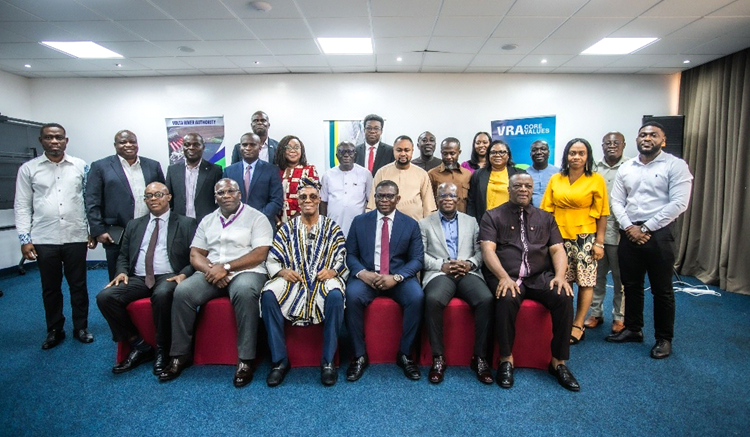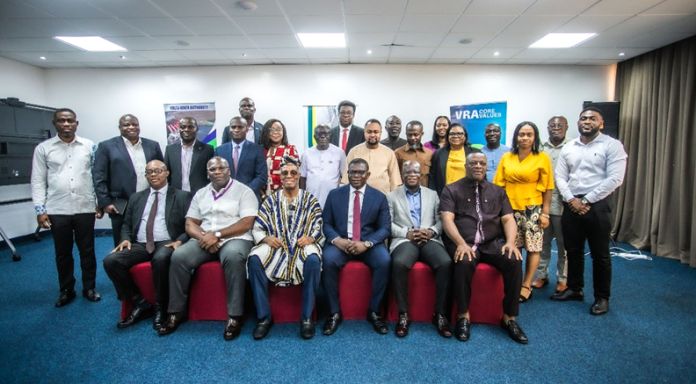By Ernest Bako WUBONTO
The Volta River Authority (VRA) has, for the first time in many years, recorded a sharp reversal in its financial performance by posting a loss of GH₵106million for the 2024 financial year.
This contrasts starkly with the GH₵80million profit declared in 2023 – a downturn the authority attributes primarily to severe foreign exchange losses and diversion of power originally meant for export to support local demand.
Revealing these figures at the 15th Stakeholder Interface Meeting in Accra, Board Chairman-VRA Jabesh Amissah-Arthur described 2024 as a particularly difficult financial year.
He noted that exchange rate volatility led to a massive forex loss of GH₵695million – up from GH₵591million in 2023 – which significantly undermined the authority’s performance.
This challenge was compounded by the inability of Independent Power Producers (IPPs) to meet local demand at certain points, forcing the Public Utilities Regulatory Commission (PURC) to direct that export-bound power be channelled into the national grid at a lower tariff than export rates.
The decision, though necessary, caused a 38 percent rise in financial expenses, further straining VRA’s balance sheet.
“A critical challenge was the diversion of power originally slated for export to the West African Power Market to serve the local grid. While total revenue increased by 17 percent to GH₵9,291million, the lower domestic tariffs and higher financial costs eroded those gains,” Mr. Amissah-Arthur explained.
He urged the PURC to adopt a different tariff mechanism for power diverted from export to local use, to cushion the authority from future financial shocks.
VRA Chief Executive Ekow Obeng-Kenzo highlighted that operations in 2024 were dominated by more expensive thermal generation, which rose from 79 percent to 89 percent of capacity.
He added that hydro-generation prospects remain constrained, with only a 6.2 percent rise in reservoir water levels during the year under review – an indication of declining storage that will likely increase reliance on costly thermal power going forward.
Mr. Obeng-Kenzo also outlined ongoing challenges affecting key generation expansion projects such as the 16.5 MW Pwalugu Solar Project, the 30 MWp Akuse Floating Solar Plant and the Anwomaso Phase Two Thermal Project.
According to him, persistent funding shortfalls, forex losses, mounting inter-utility debt and regulatory changes continue to hamper progress. He emphasised the need for endurance, innovation and efficiency to sustain VRA’s leadership in Ghana’s power sector over the next five years.
Director-General of State Interests and Governance Authority (SIGA), Prof. Michael Kpessa-Whyte, commended VRA for its corporate social responsibility initiatives but called for stronger governance and oversight to restore profitability.
He revealed that new guidelines governing dividend payments from state-owned enterprises (SoEs) are being finalised, urgingVRA to deepen its contribution to national development through safe, reliable and environmentally sustainable energy production.
Representing the Minister of Energy and Green Transition, Deputy Minister Richard Gyan-Mensah lauded VRA for increasing its generation capacity by 23 percent and advancing Ghana’s green energy agenda.
He assured stakeholders that the cash waterfall mechanism will be implemented fairly to enhance VRA’s revenue mobilisation and avert future losses.
Mr. Gyan-Mensah also underscored the importance of completing stalled projects, insisting that “every idle plant must be brought back online” to ensure stable and efficient power supply nationwide.
Post Views: 1
Discover more from The Business & Financial Times
Subscribe to get the latest posts sent to your email.






